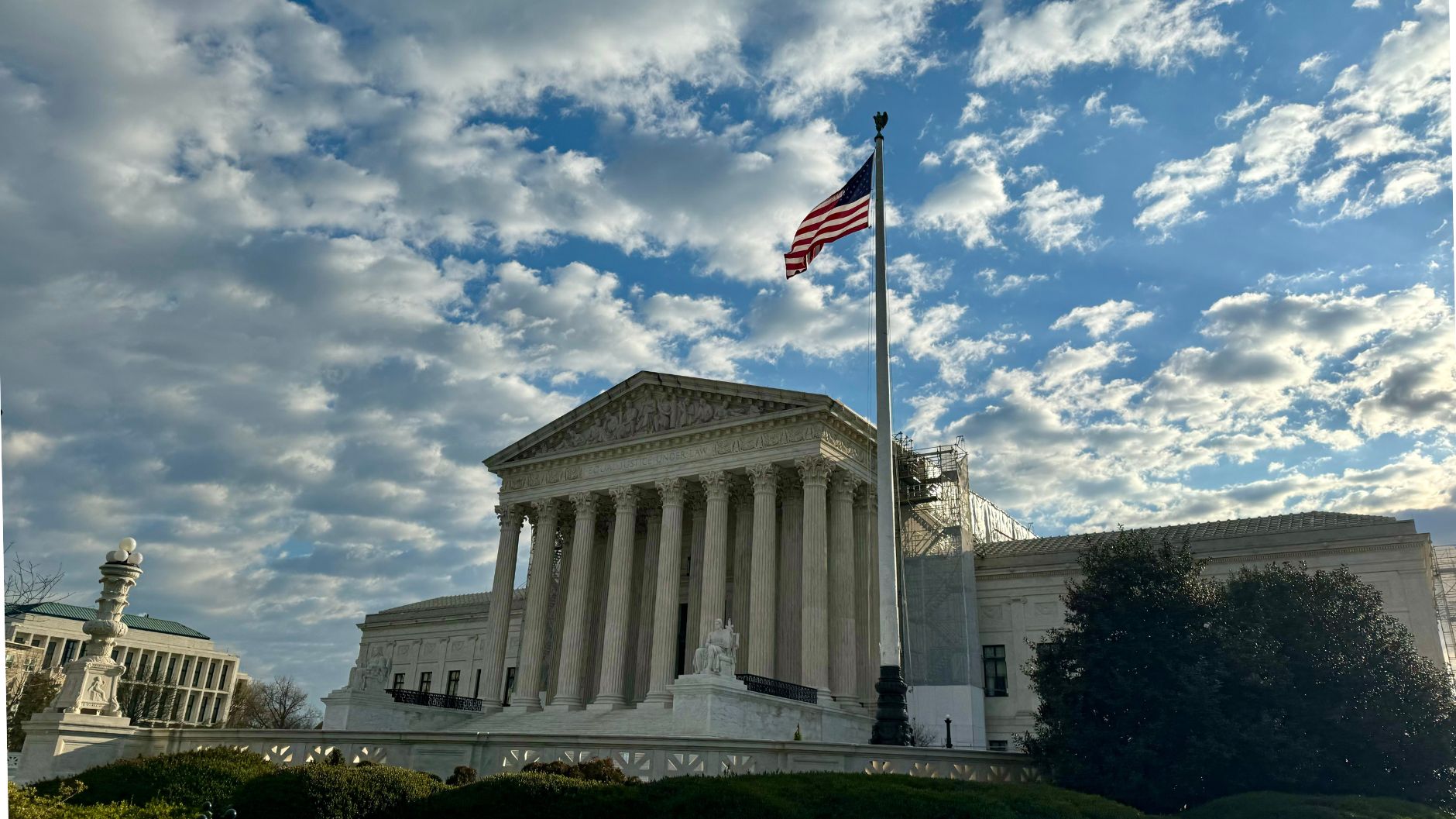WASHINGTON (CN) — The Supreme Court on Thursday overturned an appeals court ruling giving convicted murderer Danny Lee Jones a new sentencing hearing, finding that attorney errors did not warrant granting Jones a second shot at avoiding the death penalty.
Splitting along ideological lines, the six conservative justices said the Ninth Circuit overstated the impact of these blunders and completely ignored elements of Jones’ case that warranted his death sentence.
“When a capital defendant claims that he was prejudiced at sentencing because counsel failed to present available mitigating evidence, a court must decide whether it is reasonably likely that the additional evidence would have avoided a death sentence,” Justice Samuel Alito wrote for the majority.
Along those lines, the George W. Bush appointee said the Arizona Supreme Court has never vacated a death sentence for someone who had committed multiple murders or had any of the other aggravating circumstances present in Jones’ case.
“The absence of such a case strongly suggests that Jones has no reasonable probability of escaping the death penalty,” Alito wrote.
Jones killed Robert Weaver and his 7-year-old daughter, Tisha, in 1992.
The men were drinking and using methamphetamine when Jones hit Weaver over the head with a baseball bat. Jones continued his assault, attacking Weaver’s grandmother and then his daughter.
Jones was arrested for the murders of Weaver and his daughter and the attempted murder of Weaver’s grandmother — who later succumbed to her injuries.
During trial, Jones said drug use led him to commit the murders. The state argued Jones was a premeditated killer who wanted to steal Weaver’s guns.
The public defender assigned to represent Jones learned that he was oxygen-deprived at birth and had a lithium deficiency — a condition linked to serious psychiatric disorders. Jones’s medical records showed that he was medicated for mood disorders, had attempted suicide and had been admitted to a mental hospital.
Despite having access to this information, Jones’s attorney did not further investigate his mental health until after he was convicted.
Jones's lawyer presented three witnesses during sentencing, including a doctor who testified about his mental health issues. But Dr. Jack Potts was only able to conduct a short examination of Jones, and his report was less than one page of analysis. Potts advocated for more testing, but the request was denied.
A trial judge imposed two death sentences for the murders. The same judge denied Jones’s post-conviction appeal for ineffective counsel.
Jones then claimed his conviction violated federal law. The lower court dismissed his claims, but a unanimous panel on the Ninth Circuit reversed.
The appeals court applied the test set out in Strickland v. Washington, which determines if a person’s Sixth Amendment right to counsel has been violated, requiring the reversal of a conviction or the setting aside of a death sentence. The panel found that on both claims, Jones had met the deficient performance and prejudice prongs in Strickland.
Under the Ninth Circuit’s ruling, Jones would receive a new sentencing hearing. Arizona appealed to the Supreme Court to reverse.
The conservative justices sided with the Copper State, finding the appeals court erred in its application of Strickland by not adequately considering the weighty aggravating circumstances or expert testimony in Jones’ case.
Alito said the blunders led Jones to believe he was entitled to relief whenever relevant evidence was produced. But the Bush appointee said there needed to be a possibility that the new evidence would yield a different result.
“Imagine a defendant with the worst possible aggravating circumstances, say, multiple, vulnerable victims; torture; a lengthy record of violent crime; no remorse; and a vow to kill again if given the chance,” Alito wrote. “According to Jones, if the defense is able to show that trial counsel failed to produce any mitigating evidence that can be characterized as ‘substantial,’ the defendant must be resentenced.”
In that theoretical case, Alito said the aggravating circumstances greatly outweigh the mitigating evidence and make it very unlikely that a new hearing would result in a different sentence.
Alito said Jones’ aggravating factors were extremely weighty and that new evidence would not carry much weight in Arizona courts.
“As a result, there is no reasonable probability that the evidence on which Jones relies would have altered the outcome at sentencing,” Alito wrote.
All three liberal justices dissented from the ruling. Justice Sonia Sotomayor agreed the Ninth Circuit had erred in applying the court’s precedents but thought the appeals court should get another chance to review the case.
She critiqued Alito for reweighing the case himself. “The record in this case is complex, contested, and thousands of pages long,” the Barack Obama appointee wrote. “In light of this ‘extensive record’ and “intricate procedural history, . . . this is not an appropriate case to reach and settle [a] fact-sensitive issue.’”
Justice Elena Kagan, also an Obama appointee, joined Sotomayor’s opinion.
Justice Ketanji Brown Jackson was the only justice to agree with the Ninth Circuit’s ruling. The Joe Biden appointee said the conservative majority made mistakes of its own when trying to find legal error in the case. Jackson felt the appeals court had correctly applied Strickland.
“The panel not only evaluated the mitigating evidence that Jones’s trial counsel failed to unearth, it also specifically considered all of the aggravating factors,” Jackson wrote.
The Biden appointee said the appeals court’s discussion of aggravating factors was concise but noted there is no benchmark length for these considerations.
“The majority’s real critique does not appear to relate to the Ninth Circuit’s methodology,” Jackson wrote. “Rather, it merely takes issue with the weight that the Ninth Circuit assigned to each of the relevant facts.”
Subscribe to Closing Arguments
Sign up for new weekly newsletter Closing Arguments to get the latest about ongoing trials, major litigation and hot cases and rulings in courthouses around the U.S. and the world.









